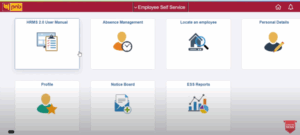6 Crucial Payroll Tips For HR Managers

Payroll process and management is a fairly tough responsibility that rests on the HR department of any organization. HR managers have to meet the expectations of the employees and at the same time are answerable to the top-tier management, ensuring there is minimal room for errors or delays.
If you’re a new HR professional or an HR manager struggling with dispensing payroll disbursements timely and accurate, we have some important tips to help you out.
1. Manage the Data First
Payroll management comes with loads of data ranging from employees’ personal information to their timesheets and leave records. Trying to deal with all the information at the last minute is neither practical nor advisable.
You should organize and verify all the employee data at regular intervals and update the records promptly to ensure that when you take up the task of disbursements, you have clean and updated data at your disposal.
2. Understand the Tax and Payroll Laws
Tax deductions are very important and must be taken into account at the time of distributing salaries to the employees. Similarly, all employees should rightfully get the benefits they’re entitled to.
As an HR manager, you must have a clear understanding of all the tax obligations and payroll laws applicable to your organization as any error in this respect can lead to legal action or penalties.
3. Be Diligent with Reporting and Filing
As the HR manager, you’re responsible for submitting the payroll reports to government authorities, quarterly or annually. Failure to report within the due date can invite a legal notice and penalty.
Get in the habit of marking your work calendar with the respective due dates, to avoid missing the deadlines.
4. Take Help of Technology
Thankfully, technology can come to your rescue if you’re really bad at organizing or keeping track of the filing dates. Automated payroll software can take the load off you to a great extent once you set the reminders and fill up the necessary details.
Many big organizations also prefer payroll outsourcing to take care of mundane payroll-related tasks and assist the HR department. Make sure you check the privacy and security features of any payroll software or service provider to keep sensitive data secure.
5. Stay Transparent
Alongside all these responsibilities comes accountability too. HR managers must be open about the payroll practices and communicate freely with the employees regarding this.
Many employees, especially the new joiners, will have questions about how much or when they’re being paid and why deductions are made. It is fair to give a statement explaining these details in advance to the employees so they’re not taken by surprise when they receive their paychecks.
6. Be Committed to Accuracy
From verifying the employees’ personal information to corroborating the data regarding work hours, checks and double checks at every step can ensure no errors in payroll processing. While overpayment directly costs the company, don’t forget that an underpaid employee may raise a legal claim against the company. The HR managers must be conscious that a single mistake at their end can cost the company in terms of money as well as reputation.
Conclusion
Managing payroll is an important role of the HR manager, one which demands knowledge of legislation and expertise in the process. Fine-tuning your approach toward the payroll process can help you minimize inaccuracies and keep you relatively stress-free about managing the nitty-gritty.
Being regular with the filings and keeping strict accurate records are vital for efficiently processing payroll. A lot of things can also be simplified with the use of technology or payroll outsourcing.
These simple tips can ensure that the payroll process is well-managed and that the employer as well as the employees are happy.

Pranab Bhandari is an Editor of the Financial Blog “Financebuzz”. Apart from writing informative financial articles for his blog, he is a regular contributor to many national and international publications namely Tweak Your Biz, Growth Rocks ETC.







